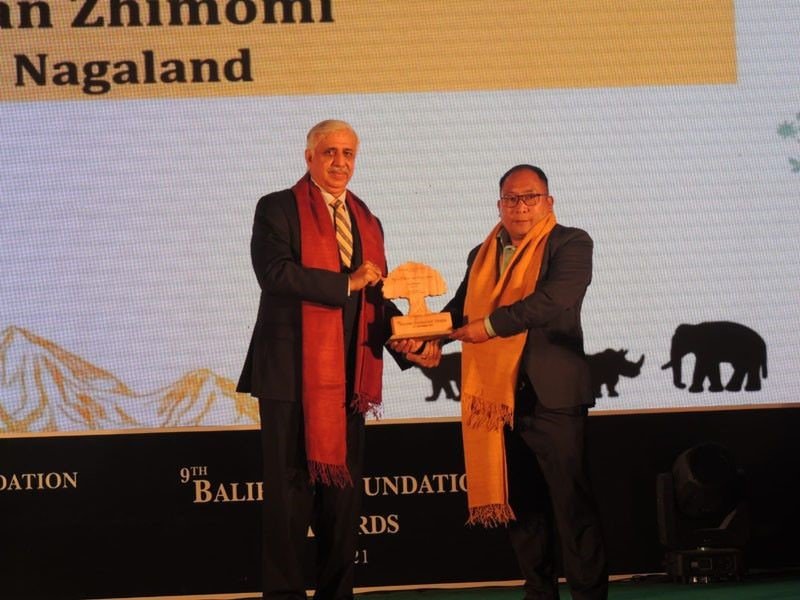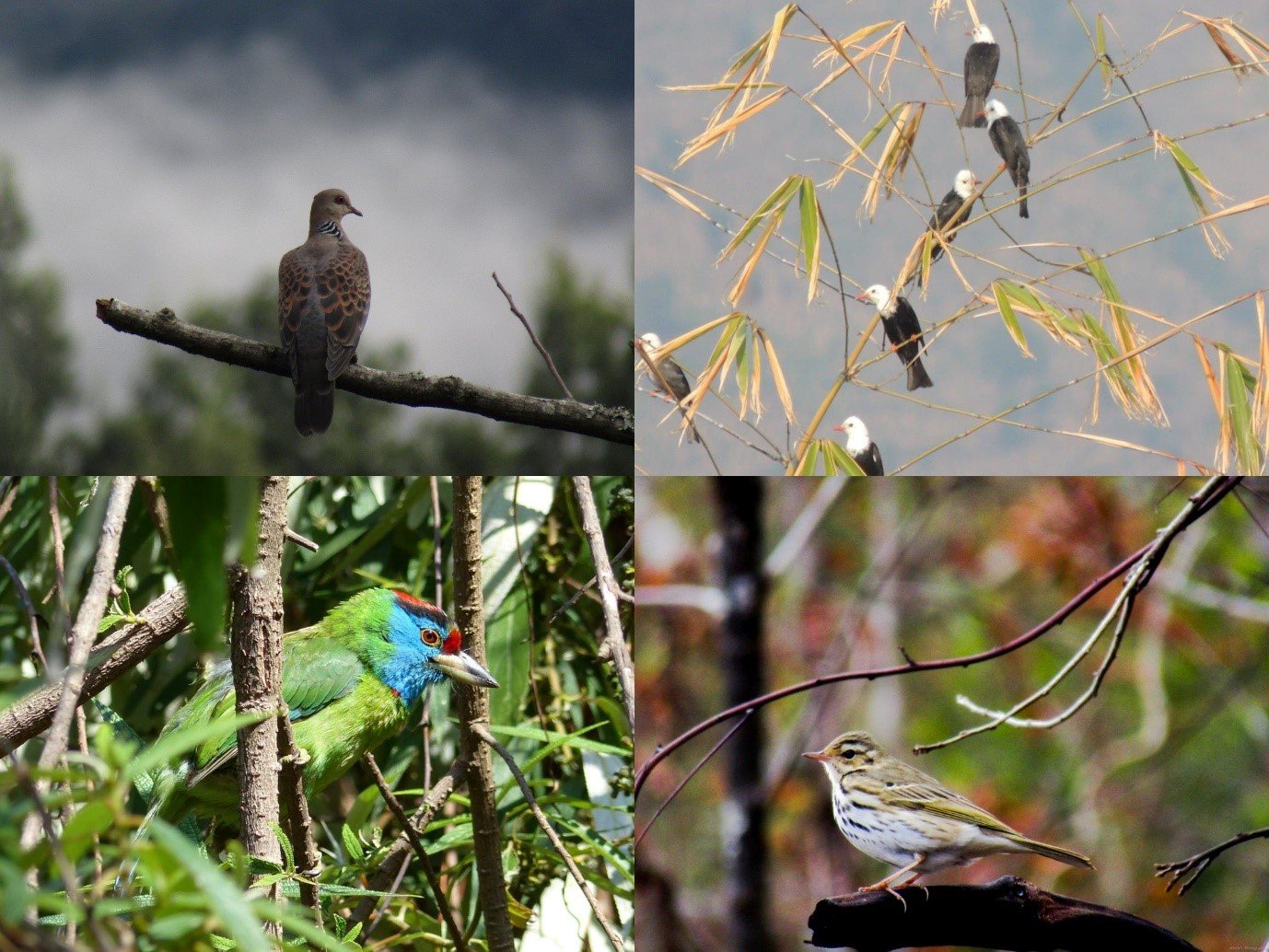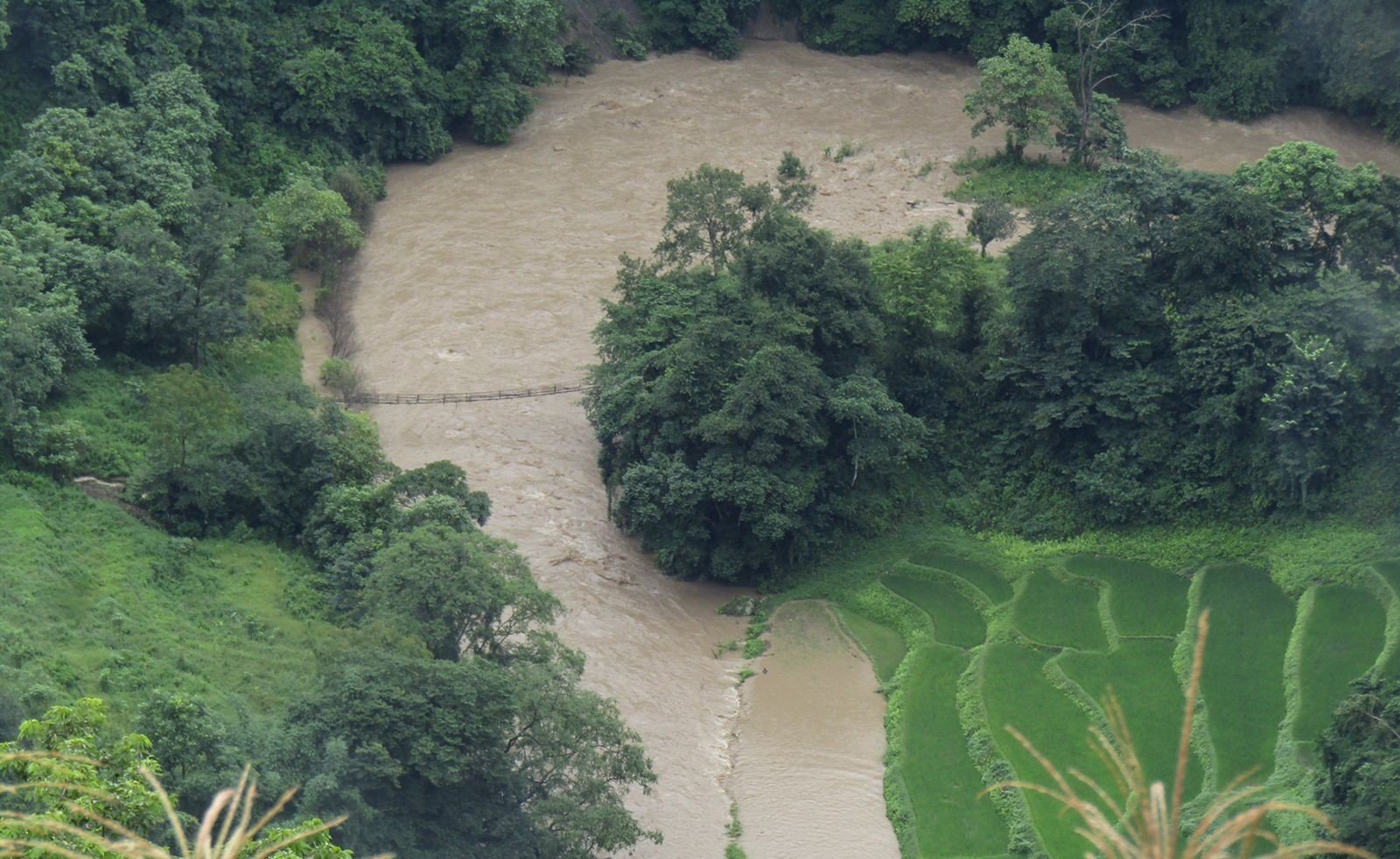Ivan Zhimomi began work around conservation seven years ago in 2014 through the Tizu Valley Biodiversity Conservation and Livelihood Network (TVBCLN) – an initiative which has now turned into a major tourist hotspot of Zunheboto and Nagaland.
TVBCLN is located on the banks of Tizu river, one of the main river drainages in Nagaland which flows through the landscape.
Ivan Zhimomi, the CEO of TVBCLN, informed that it was a joint initiative of three villages – Sukhai, Kivikhu and Ghukhuyi – which are home to a plethora of flora and fauna. These areas act as an important green corridor between the biodiversity rich forests of the Satoi range and other biodiversity rich areas that harbour endangered and threatened species, with Tizu river being home to many native fish species and other aquatic life.
Zhimomi said the Tizu River and its surrounding forests have been strained by destruction of forest, uncontrolled hunting, soil erosion and over exploitation of fishes, causing fast depletion of fish population, wildlife and the forest resources.
Fearing the loss of native fishes and wildlife, the Sukhai village council had initially passed a village resolution, declaring 789 hectares of forests as Community Conserved Areas (CCAs). They banned hunting, felling of trees and use of any destructive fishing technique in the Tizu River. Subsequently, in order to ensure conservation of large contiguous forest areas, the neighbouring villages of Kivikhu and Ghukhuyi in a joint effort declared 204 hectares and 370 hectares respectively as CCAs.
The collective effort of the three villages has now led to the conservation of around 1,363 hectares of forest area altogether.

Ivan Zhimomi, CEO of TVBCLN
For Zhimomi when communities come forward with concerns for the future generation, it brings him great relief and joy.
“Biodiversity conservation is directly interrelated with our culture and tradition, agriculture and wildlife,” he said. These initiatives strengthen community bond and understanding with each other and with neighbouring villages, he further added.
Such collective action towards generating livelihood opportunities, caring for the environment and climate change is what has made Zhimomi a champion for this cause.
Community-led efforts for conservation are critical at a time where concerns over deforestation and loss of biodiversity are growing. Community-led conservation empowers local communities and is far more flexible compared to a top-down approach to conservation. Communities become central to decision making about their land and resources.
However, getting here has not been easy. Wild animals need green corridors and for Zhimomi, convincing villages on this has been a challenge. He said one of the biggest challenges, however, lies in convincing land owners to donate land for the initiative.
Commenting on hunting, Zhimomi acknowledged that for hunters and poachers, the practice of hunting and fishing is important to their livelihood and food habits, and interfering in this matter is a challenge as well.
A crucial point Zhimomi made is the need to understand and identify affected livelihoods when such initiatives are introduced; providing access to benefits for such individuals within the community should be in place.
The planning and networks between communities, state agencies and international organisations are also significant, he said.

Some of the bird species found in TVBCLN area.
Zhimomi informed that rules have been set by the CCAs which impose a complete ban on hunting and fishing. Anyone breaking the rules is to be fined heavily by the village community.
TVBCLN has won special recognition from the Ministry of Environment, Forests and Climate Change (MoEFCC), United Nations Environment Program (UNEP) 2018 and the Energy and Resources Institute (TERI) for sustainable use of Biological Resources, Zhimomi said.
In addition, TVBCLN has started a festival called Chengu (Great Barbet) Festival and in 2021 celebrated the 3rd Chengu Festival supported by the Japan Fund for Global Environment of the Global Environmental Restoration and Conservation Agency. The 4th instalment of the event is set to take place in December 2022.
Zhimomi further said nine farmers from TVBCLN were recently funded by Satoyama, a global initiative, for a farmers exposure trip to the Philippines.
But above all these, perhaps one of the most significant achievements of the TVBCLN is in being able to convince the local community to partake in the revival of traditional practices of conservation.
Rajkumar M, IFS, Divisional Forest Officer (DFO) Kohima, had worked with TVBCLN during his tenure as DFO Zunheboto in 2018-19. Describing the organisation’s dedication towards conservation of natural resources as “highly commendable”, he said:
“Most of Nagaland’s forests are under community/private ownership. Conservation of forests is possible only when the community takes the lead in protecting its natural resources. TVBCLN has been doing a wonderful job not just in conserving forest resources in their villages but also in inspiring initiatives in other areas as well.”
Through these conservation initiatives the network has become a global research site for biodiversity, culture and tradition, and agriculture while also promoting nature-based ecotourism which has generated livelihood opportunities for the youths and communities through home stays, catering services, transportation and local tourist guides, and improving agriculture support systems and improving ecosystem services for humankind.


